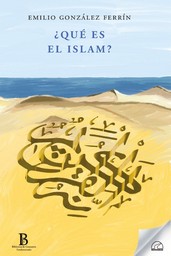Reseña de Emilio GONZÁLEZ FERRÍN (2024): ¿Qué es el islam?, Senderos, Sevilla, 198 páginas.

Palavras-chave:
Islam, Corán, Religión, Sociedades musulmanas, Estudios islámicosCopyright (c) 2025 Marina Santana-Martín

Este trabalho está licenciado sob uma licença Creative Commons Attribution-NonCommercial 4.0 International License.
Resumo
El libro ¿Qué es el islam? (2024) de Emilio González Ferrín propone un enfoque innovador para comprender el islam desde una perspectiva multidimensional. El autor distingue tres tipos de islam: el religioso, el civilizacional y el contemporáneo, argumentando que el Islam (civilización) precedió al islam (religión). A través de un análisis histórico-crítico, plantea que el Corán fue una recopilación tardía de textos monoteístas y que la narrativa tradicional sobre el surgimiento del islam responde a una construcción retrospectiva de la civilización arabizada del siglo IX. Asimismo, examina la evolución del Islam medieval como un espacio de intercambio cultural y su posterior declive ante la modernidad. En el siglo XIX, el colonialismo europeo propició la transformación del islam en una herramienta de resistencia, derivando en nacionalismos musulmanes en el siglo XX. González Ferrín critica la visión eurocéntrica del progreso lineal y aboga por una comprensión del islam libre de estereotipos. Su obra representa una contribución significativa a los estudios islámicos, desafiando interpretaciones tradicionales y ofreciendo un análisis interdisciplinario que integra historia, religión y política. Con ello, invita a repensar el islam como un fenómeno dinámico cuya esencia radica en la ética y la liberación de los pueblos.
